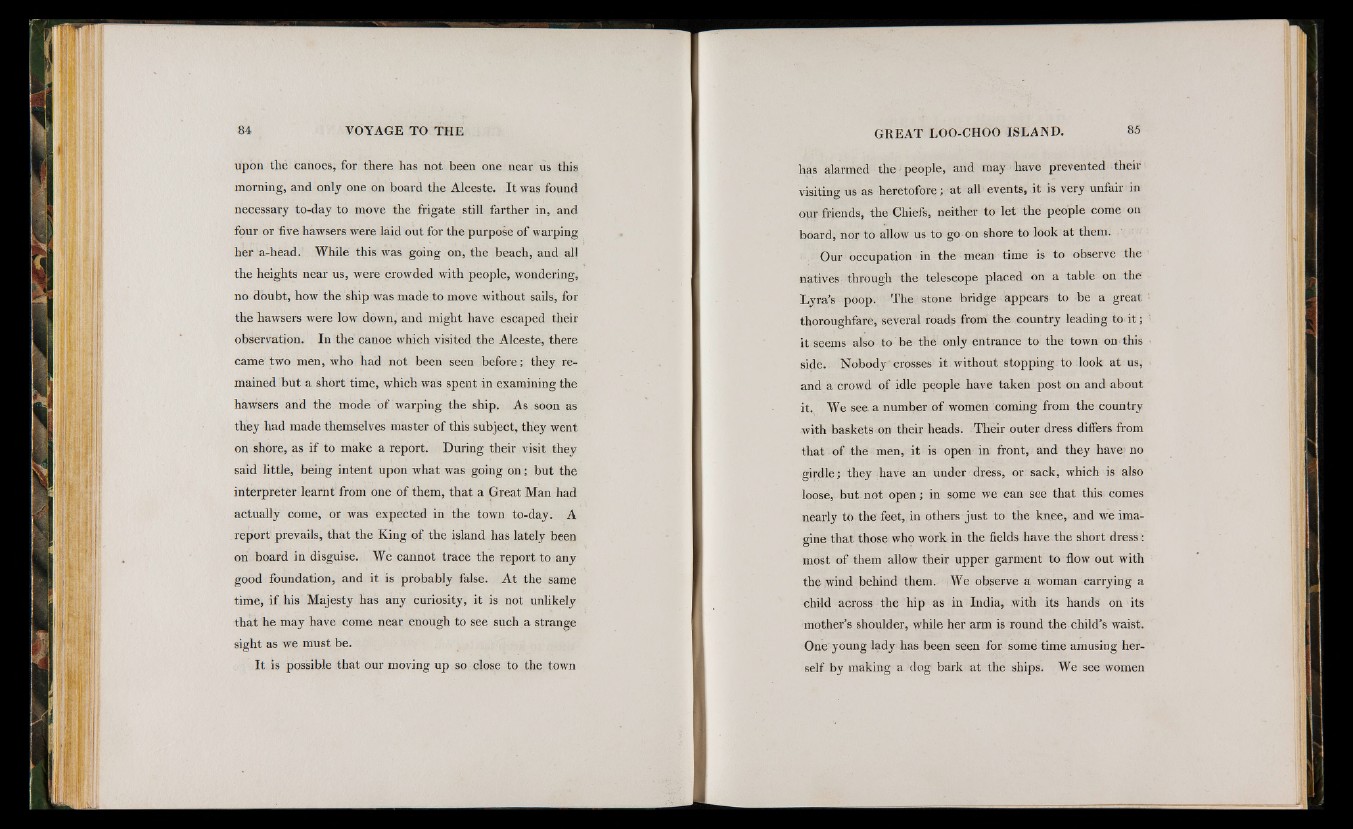
upon the canoes, for there has not been one near us this
morning, and only one on board the Alceste. I t was found
necessary to-day to move the frigate still farther in, and
four or five hawsers were laid out for the purpose of warping
her a-head. While this was going on, the beach, and all
the heights near us, were crowded with people, wondering,
no doubt, how the ship was made to move without sails, for
the hawsers were low down, and might have escaped their
observation. In the canoe which visited the Alceste, there
came two men, who had not been seen before ; they remained
but a short time, which was spent in examining the
hawsers and the mode of warping the ship. As soon as
they had made themselves master of this subject, they went
on shore, as if to make a report. During their visit they
said little, being intent upon what was going on ; but the
interpreter learnt from one of them, tha t a Great Man had
actually come, or was expected in the town to-day. A
report prevails, tha t the King of the island has lately been
on board in disguise. We cannot trace the report to any
good foundation, and it is probably false. At the same
time, if his Majesty has any curiosity, it is not unlikely
tha t he may have come near enough to see such a strange
sight as we must be.
I t is possible that our moving up so close to the town
has alarmed the people, and may have prevented theii
visiting us as heretofore;; at all events, it is very unfair in
our friends, the Chiefs, neither to let the people come on
board, nor to allow us to go on shore to look at them.
Our occupation in the mean time is to observe the
natives through the telescope placed on a table on the
Lyra’s poop. The stone bridge appears to be a great
thoroughfare, several roads from the country leading to i t ;
it seems also to be the only entrance to the town on this
side. Nobody crosses it. without stopping to look a t us,
and a crowd of idle people have taken post on and about
it. We see. a number of women coming from the country
with baskets on their heads. Their outer dress differs from
that of the men, it is open in front, and they have* no
girdle; they have an under dress, or sack, which is also
loose, but not open; in some we can see that this comes
nearly to the feet, in others ju st to the knee, and we imagine
that those who work in the fields have the short dress:
most of them allow their upper garment to flow out with
the wind behind them. We observe a woman carrying a
child across the hip as in India, with its hands on its
mother’s shoulder, while her arm is round the child’s waist.
One young lady has been seen for some time amusing herself
by making a dog bark at the ships. We see women